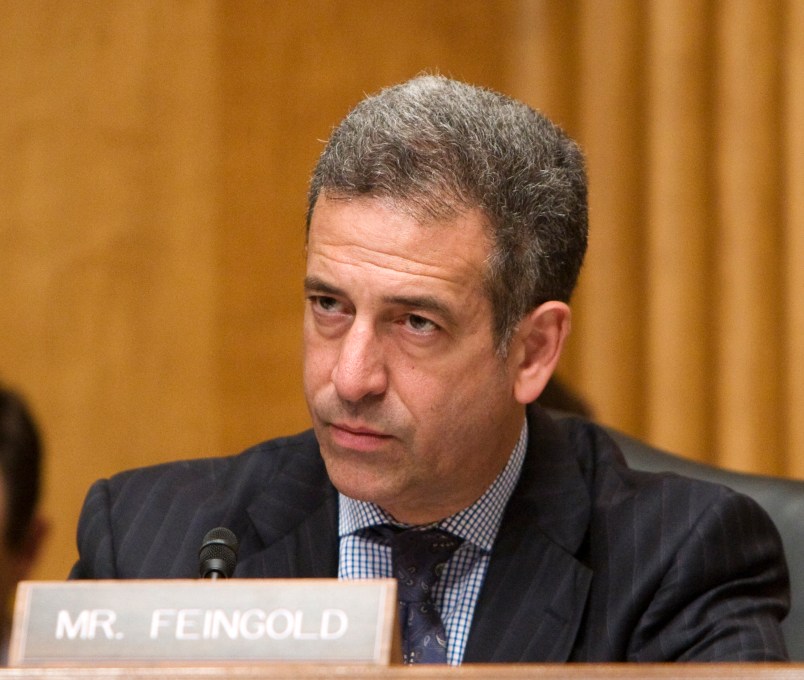Democrats are in hot pursuit of Russ Feingold’s vote for Wall Street reform. But in a statement sent my way this afternoon, Feingold says he’s told the White House and key congressional leaders that he’s still a no unless the bill gets significantly stronger.
“During debate on the financial regulatory reform bill, I made it clear that I would only support a strong bill that can prevent another financial crisis,” Feingold’s statement reads. “Neither the House bill nor the Senate bill pass that test.”
I have spoken to Senate leaders, the Obama administration, and members of the conference committee and made my concerns well known. I opposed deregulating Wall Street and eliminating the protections of the Glass-Steagall Act, a position which put me at odds with many in Washington who supported the very policies that contributed to the financial crisis, and who now support these bills that simply don’t get the job done. Without including stronger reforms, we’re simply whistling past the graveyard.
That’s not a declarative ‘no’. Indeed, along with the statement, Feingold’s office added a list of provisions that weren’t part of the Senate financial reform bill, but that could have tipped him into the yes column if they’d been included. I’ve pasted that list below. Note in particular the last one: “[The] Merkley-Levin amendment to prohibit any bank with government insured deposits from engaging in high-risk finance, like investing in hedge funds or private equity funds.”
Emphasis mine.
That’s where the debate on the conference committee is headed. Tomorrow, congressional negotiators will determine whether to include the Merkley-Levin amendment in the final legislation, and whether that amendment should be tweaked to allow federally insured banks to invest in hedge funds. Without Feingold’s support, the deciding vote on the final bill belongs to Republican Sen. Scott Brown, who’s been pushing to allow that very objection. To flip the dynamic, progressives and reformers have been pressuring Feingold to consider changing his vote, and in his statement, Feingold seems to suggest he’s game.
At the same time, though, he’s been clear for the whole debate that the single biggest issue for him isn’t whether the rules governing Wall Street are tight (though he supports strong regulations), but whether the legislation shrinks, or breaks apart, large, systemically significant financial firms. It does not, and the Merkley-Levin amendment will not accomplish that.
So he’s still a question mark. One thing’s absolutely clear, though: if the conference committee includes the hedge-fund loophole tomorrow, Feingold will remain a no.
* Cantwell-McCain-Feingold amendment to restore the Glass-Steagall firewall between Wall Street and Main Street
* Senator Dorgan’s “too big to fail” amendment, which requires that no financial entity be permitted to become so large that its failure threatens the financial stability of the U.S.
* Brown-Kaufman amendment proposing strict limits on the size of financial institutions
* Dorgan amendment to ban so-called naked credit default swaps, speculative bets that played a role in the economic crisis
* Merkley-Levin amendment to prohibit any bank with government insured deposits from engaging in high-risk finance, like investing in hedge funds or private equity funds










